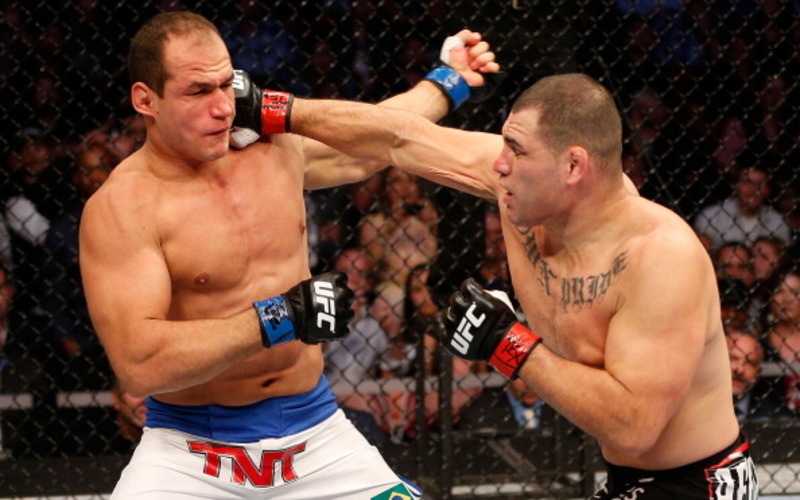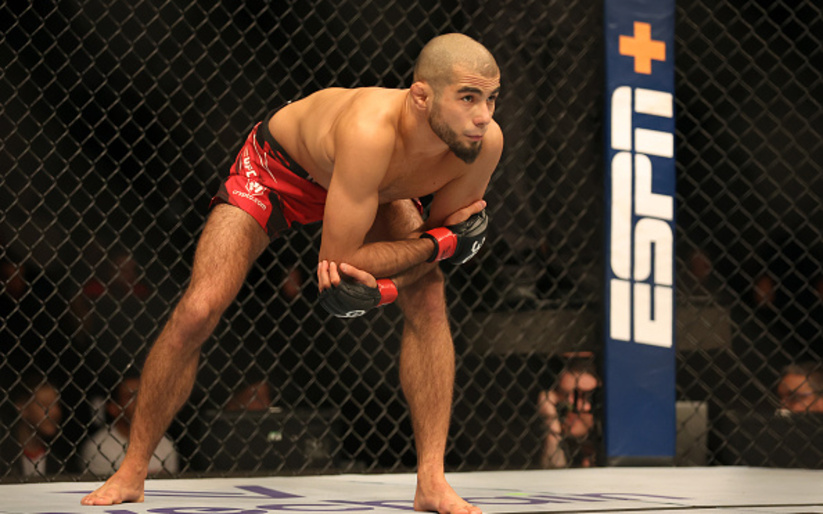Mixed martial arts, for as much as we love it can be a cruel, unforgiving sport. Injuries come with the territory just as they do in any other athletic contest, though they are almost made to happen in a sport that features two people looking to make the other person quit inside a cage or ring.
Some injuries are fleeting in nature with fighters making an otherwise full recovery. With the money being spent on MMA wagering, the impact of an injury is compounded upon his return. Many sports books will give their lines based on previous fights of course, so a fighter coming off injury is sure to come with betting risks. Using UFC betting apps in US, Canada, the UK and beyond does provide up-to-the-minute odds changes.
Some injuries and illnesses have drastically hindered and in some instances derailed careers not short on promise and potential.
5 MMA Career-Ending Injuries
Cain Velasquez
The most popular modern example of an MMA career cut short due to injury is Cain Velasquez, a two-time UFC heavyweight champion. Affectionately known to fans as “Cardio Cain,” Velasquez quickly gained notoriety for his pace and volume in a weight class that lacked both. In order to maintain such a pace, Velasquez pushed himself to the limit in training, which led to a litany of injuries over his career. Velasquez has suffered, at one time or another, a torn rotator cuff, a sprained MCL, a torn meniscus, bone spurs in his back, and another freak knee injury on his way to the canvas after getting hit by a Francis Ngannou uppercut in his final fight.
Velasquez retired from MMA at the age of 37, and while that might suggest a full career for the two-time champ, inactivity plagued him as he fought just three times over the final five years of his career. Were even one of his injuries to be eradicated, Velasquez might still have a claim to be the greatest heavyweight of all time.
T.J. Grant
If you’re new to MMA, you might be asking yourself why you’ve never heard of T.J. Grant. That’s because Grant’s career ended when he was on the cusp of stardom, and unlike many of the names on this list, Grant’s career trajectory toward retirement wasn’t gradual. Rather, the Canadian’s retirement was about as abrupt as can be, though nobody even became aware of it until years later.
Grant, an all-around mixed martial artist who loved to brawl, climbed the lightweight rankings in violent fashion, ending his career on a five-fight winning streak with knockouts over Gray Maynard and Matt Wiman. His skill set made him an interesting style matchup for then-champion Benson Henderson as well as the eventual champion Anthony Pettis. A fight with Henderson was actually on the docket for UFC 164 in Milwaukee, Wisc., but an injury forced him out of the bout. Once Pettis became the champion, the UFC tried to make Grant vs. Pettis at UFC on Fox 9 in Sacramento, Calif., but Grant was again forced out, this time with a severe concussion. As time passed, Grant was quietly removed from the rankings pool, and years later cited his troubles with debt compounded with his injuries as the reason behind his departure from the sport.
Dan Hardy
A medical diagnosis brought the once promising career of Dan “The Outlaw” Hardy to a halt. Hardy, who amassed a career record of 25-10, endured a four-fight losing streak after unsuccessfully challenging Georges St. Pierre for the UFC welterweight gold, but found himself in the midst of a career turnaround before getting the medical recommendation from doctors to never fight again.
Hardy has a rare, semi-genetic condition known as Wolff–Parkinson–White syndrome, a disorder stemming from irregularities in the heart. Symptoms may include an abnormally fast heartbeat, palpitations, shortness of breath, lightheadedness, or syncope, and in extreme cases a heart attack. With advancements in modern medicine combined with the fact that the condition never actually saddled Hardy with any of the aforementioned symptoms, Hardy would be cleared to resume his career at the age of 35, though he opted to stay retired in spite of recently angling for a boxing match with Tyron Woodley.
Chris Holdsworth
You may or may not be familiar with the name Chris Holdsworth, but if you’re a religious viewer of mainstream MMA programming you probably see him more than you think. This is because Holdsworth is one of the primary coaches at Team Alpha Male alongside Urijah Faber and Danny Castillo. However, prior to becoming a full-time coach at TAM, Holdsworth was an MMA standout in his own right as the winner of The Ultimate Fighter: Team Rousey vs. Team Tate.
Holdsworth dominated the show, winning all three of his fights in the TUF House by submission before earning one more submission against current 135-pound mainstay Davey Grant at the finale. Thinking back to the time he won the show, Holdsworth stood out as one of the most dominant TUF winners in recent memory, and considering his age at the time (26), many pegged him as a name to watch in the coming years. However, after grinding out a unanimous decision win over Chico Camus, Holdsworth took an indefinite hiatus from competition due to lingering effects stemming from a concussion suffered in training. He has not fought since, though he has corned several Team Alpha Male contenders in recent years.
Bas Rutten
Bas Rutten is a curious case because he didn’t even compete in a UFC cage until he was 24-years-old. Given his magnetic charisma, unique brand of kickboxing, English speaking ability and his desire to improve from fight-to-fight, Rutten could have been the first international box-office attraction for the company. The UFC brass thought the world of him, even going as far as to give him an immediate title shot against Kevin Randleman at UFC 20. Rutten became the champion that night, but his career would take a turn for the worse in the months to follow.
Although he had already made a pledge to vacate the heavyweight championship in a bid to move down to what we now know as light heavyweight, a string of injuries would bring an end to Rutten’s run as one of the most devastating strikers in the sport. Recurring problems with his knees, bicep and neck all contributed to Rutten calling it quits. though that did not stop promoters from offering him fights. He eventually took one more professional fight against journeyman Ruben Villareal in summer 2006, but afterwards tested positive for hydrocodone, morphine, and diphenhydramine, all of which serve to illustrate the kind of shape he was in at the time. Rutten has since gone on to become one of the most influential fighters in the sport’s history.



